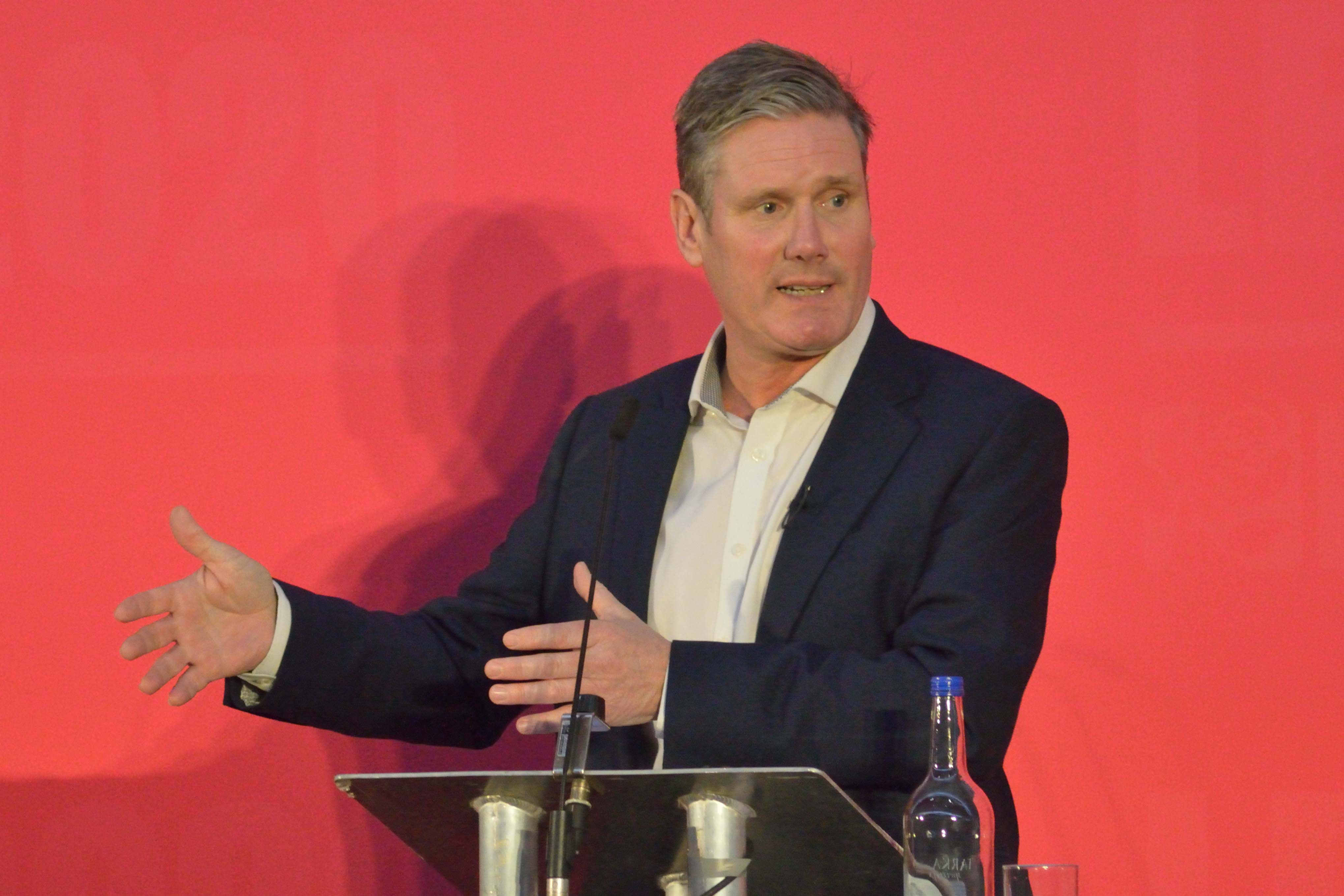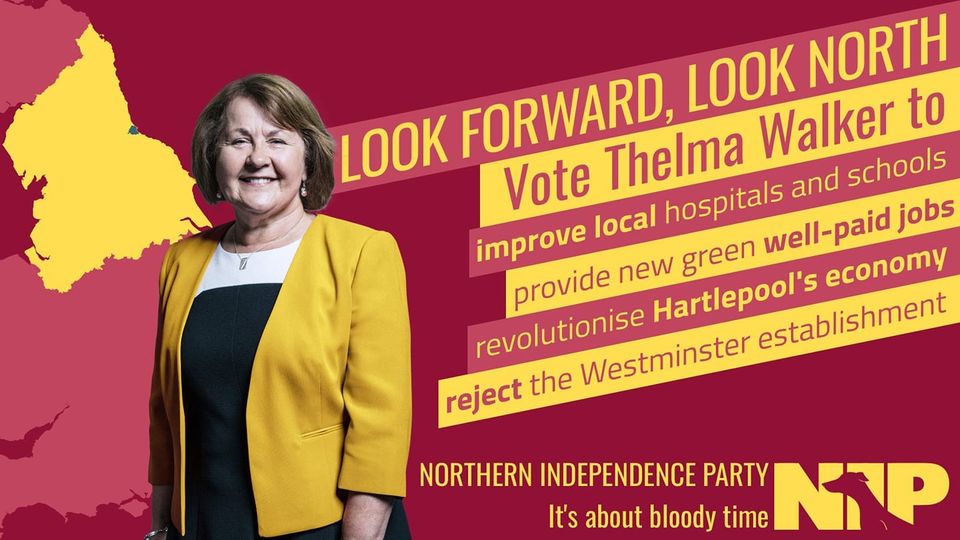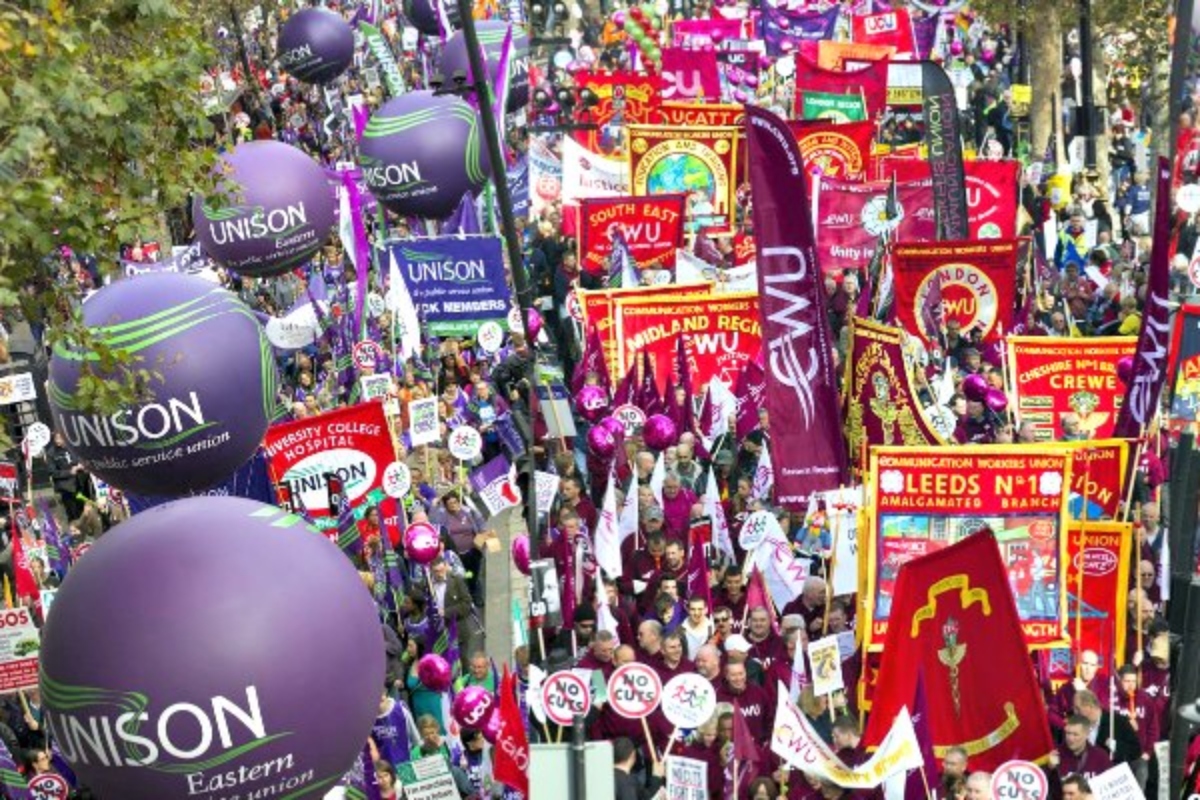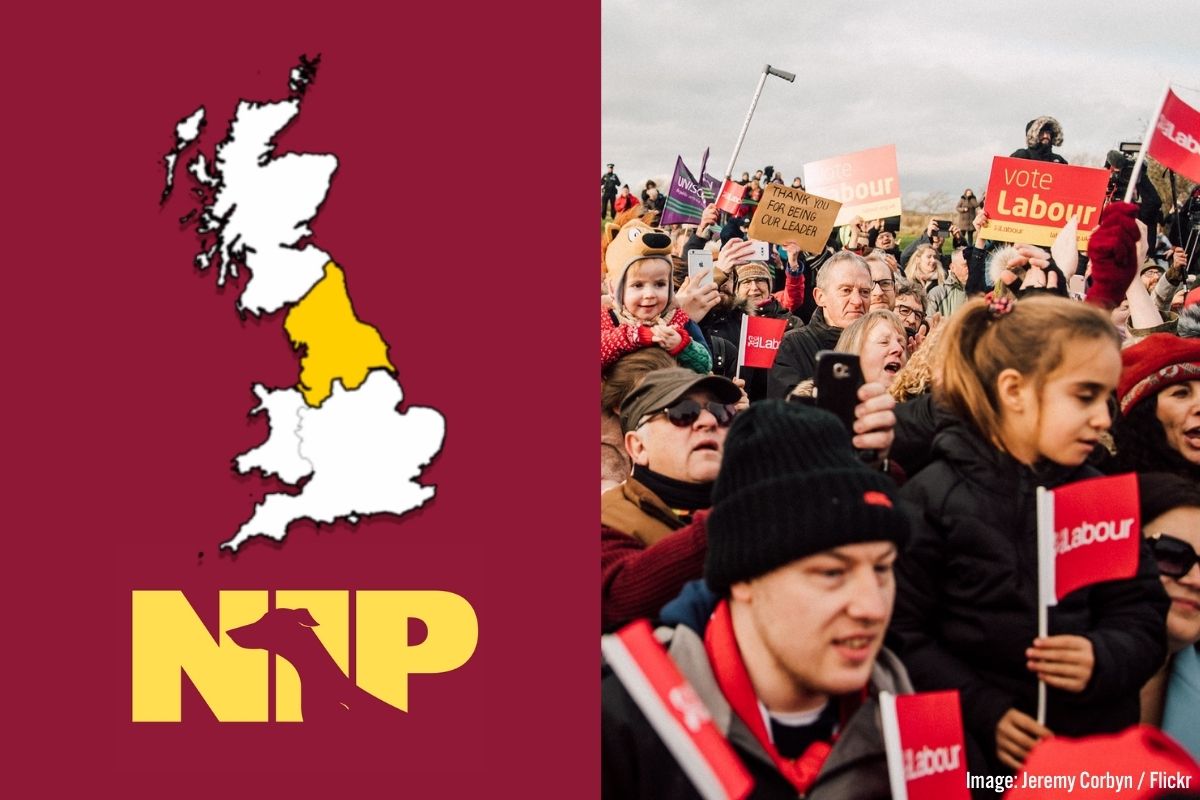With the Hartlepool by-election drawing closer, some on the left are throwing their weight behind the Northern Independence Party (NIP).
Although the NIP failed to register as an official party in time, the organisation is still planning to stand a candidate in the contest. Thelma Walker, a former Labour MP for Colne Valley between 2017-19, will be running as an independent in the by-election, essentially on a NIP platform and programme.
The self-styled ‘democratic socialist’ group is calling for the secession of the north of England into an independent state of Northumbria – hearkening back to the 8th century Anglo-Saxon kingdom of the same name. In doing so, they hope to “end Westminster rule” and thereby “free the North”.
While the party has gained a considerable following on social media in the months since its creation, a question mark remains over whether they are a serious political force. Indeed, the NIP’s founder himself remarked that the project started as a joke on Twitter.
What’s the appeal?
Nonetheless, the NIP have gained the ear of a layer of Corbyn-supporting lefts, appealing to disgruntled Labour Party members with sharp attacks on Starmer’s Labour leadership.
This is not so surprising. Recent events in the Labour Party – Corbyn’s suspension; clampdowns on party democracy; expulsions of left-wingers, etc. – have left a whole layer of the Labour left feeling demoralised and powerless in the face of the right wing’s bureaucratic offensive.
The leadership’s move to impose a single candidate in the Hartlepool by-election – right-winger Paul Williams – has also poured fuel on the fire, provoking further anger amongst grassroots Labour members.
This is so embarrassing https://t.co/7uQYBjZZsd
— Northern Independence Party ?? (@FreeNorthNow) April 23, 2021
The Labour leadership’s unpopularity can also be seen in the results of the recent poll commissioned by the CWU, ahead of the by-election. According to this survey, Labour are trailing behind the Tories by 9 percentage points – in a seat that has been red since it was first created in 1974.
What’s more, Keir Starmer’s approval rating is a mere 24% among Hartlepool’s voters. By contrast, 49% approve of Boris Johnson. The picture is clear: the Labour right are leading the party over a cliff.
Philip Proudfoot – the NIP’s founder – has positioned the party as an alternative to Labour. In an interview with the New Statesman, Proudfood claimed that: “We’re a revolt against the Tories pretending that they can represent the north; and we’re a revolt against Labour for just ignoring us and taking us for granted.”
The role of the Labour right

The Labour right has indeed taken northern voters for granted, just as they took Scottish voters for granted prior to the 2014 independence referendum. The collapse in support for Labour in certain northern seats is the product of a rightward shift in Labour spanning decades.
Following Thatcher’s brutal attacks upon the working class in industrial centres of the north, the Labour leadership did little to mobilise to defend working-class communities.
Instead, the Labour right dutifully carried out cuts on behalf of the capitalists and the Tories by adopting a ‘dented shield’ approach. Lacking any perspective or determination to challenge austerity, the logic of capitalism in crisis, Labour councillors saw their role at best as one of carrying out ‘nicer cuts’, rather than fighting to transform society.
Similarly, the rise of New Labour and the victory of Tony Blair in 1997 did nothing to improve the lives of workers in the north. Blair was a dyed-in-the-wool representative of the British capitalists, who jettisoned socialist, class-based policies in favour of cosying up to big business.
Now, the Labour right are correctly seen as no different from the rest of the Westminster establishment in the eyes of northern working-class voters. Many feel neglected by Labour. And this sense of betrayal culminated in the collapse of the ‘Red Wall’ in the 2019 general election.
Class programme

So what do the NIP have to offer to northern voters who feel abandoned by Labour? At first glance, their manifesto has some inviting proposals: ending fire-and-rehire tactics; banning zero-hours contracts; and reversing the privatisation of the NHS.
Such demands no doubt appeal to many working-class voters far more than the reheated Blairism and nauseating ‘patriotism’ offered by Keir Starmer and the right-wing Labour leadership.
Nevertheless, at root, the NIP’s platform is not a class-based one. While the group clearly orients itself towards working-class voters and styles itself as “socialist”, it also states that its aim is to represent the “whole of the North and everyone who lives here” (our emphasis).
From the above statement, we can only assume that the NIP also hopes to represent northern landlords and bosses.
But the fact is that the interests of workers and the bosses are diametrically opposed. You can’t represent both at the same time. One will have to be favoured over the other – as Boris Johnson is also discovering, as splits in the Tory Party continue to widen.
Moreover, the NIP’s manifesto envisions an independent north on a capitalist basis. The idea of nationalisation is treated with suspicion, with the party declaring that “socialism does not mean that the state owns everything”.
Instead, the NIP advocates a system in which “co-operatives, locally-owned businesses, social enterprises, and community-owned organisations work together in an economic democracy”. Large corporations, however, would remain in private hands, only with heavier taxes.
The problem with this vision for so-called ‘municipal socialism’ (or ‘Preston model’) is that small co-operatives and local reinvestment do nothing to address the underlying logic of capitalism: an inherently crisis-ridden system based on production for profit and a ruthlessly competitive race to the bottom. Either you break with capitalism, or you are forced to accept its cold, hard logic.
In short, the NIP does not put forward a clear class programme. For them, the problems facing northern workers arise from the fact that they are northern, and not from their class position as workers. Instead of seeing the main struggle as one between workers and bosses, they see the struggle as one between the vaguely-defined ‘north’ and ‘south’.
The ‘solution’, from the NIP perspective, lies in more representation for northerners. But it is not simply a matter of where our representatives come from, but rather which class and whose interests they represent.
After all, there are plenty of Tory MPs (particularly from the 2019 crop) who were born and bred in the north. But none of these ladies and gentlemen have the interests of northern workers – nor any workers, for that matter – at heart.
United class struggle

Of course, there’s no denying that regional inequalities do exist in Britain. For example, a study by the End Child Poverty coalition showed that certain towns and cities in the North East have some of the highest child poverty rates in the UK.
Indeed, evidence suggests that the Tories’ programme of austerity fell hardest on the North. Between 2010-2017, the Tories cut central government funding to councils like South Tyneside, Salford and Gateshead upwards of 40% – a figure which far exceeds the average of 24% across England.
The disparity between the north and south, however, is not simply the result of an Etonian clique looking upon the north with contempt. This divide is part and parcel of the crisis of British capitalism.
With much of Britain’s former industry situated in the north, decline from the 1970s onwards ripped the heart out of northern towns and cities, leaving poverty and unemployment in its wake.
But the truth is that the crisis of capitalism is felt all throughout the country, not just in the north. For example, the rate of child poverty in the London borough of Tower Hamlets stands at 57% – one of the highest rates in the country. Similarly, councils in London such as Croydon are facing bankruptcy, with services set to be slashed.
The crisis of capitalism affects the whole working class, both in the north and south of Britain, and internationally. The fight against capitalism must therefore encompass the whole working class too. It is an elementary principle in the workers’ movement that unity is strength – and socialists must uphold this unity.
Raising artificial boundaries between northern workers and southern workers can only hold the struggle for socialism back. It is only on the basis of a united class struggle that we can end the rule of the Westminster establishment and overthrow capitalism.
Which way forward?

The NIP are hoping to stand candidates in the upcoming local council elections, as well as in the Hartlepool by-election.
Despite all of Labour’s current failings, the NIP’s decision to stand candidates against the Labour Party is a mistake. This may potentially split the vote, and thereby hand power to the Tories. This would prove to be even more of a disaster for the working class.
But this isn’t the end of the story. Clearly there is a need to fight the Tories. The point is that the Labour right wing – with Blairite candidates like Paul Williams – are incapable of leading such a fight.
No amount of flag-waving and pro-business policies can win back the ‘Red Wall’, regardless of what right-wing relics like Peter Mandelson insist. Indeed, by pandering to nationalism and appealing to big business, the Labour right wing are only digging an even deeper grave for the party in these former strongholds.
The Labour right are the representatives of the establishment inside the party. But their grip on the Labour Party is not completely tight. By waging a determined campaign, the left can wrestle back control of the party, and turn it into a viable weapon for the working class to wield in the fight for socialism.
Instead of pouring energy into a new party like the NIP, grassroots activists should struggle to reclaim the Labour Party, starting by organising to show Starmer and the right wing the door.
Only on the basis of clear class-based demands and a bold socialist programme can Labour win back the support of northern voters – and all workers – who feel neglected by the party.
Moreover, only by building a united movement of the working class, in the north and south, can we topple this Tory government and the rotten capitalist system that they represent.






